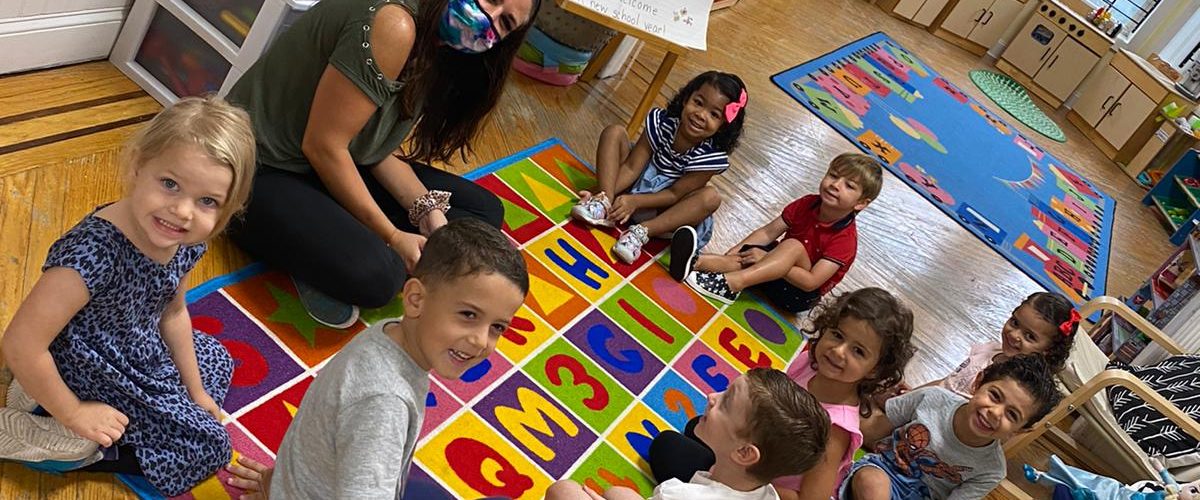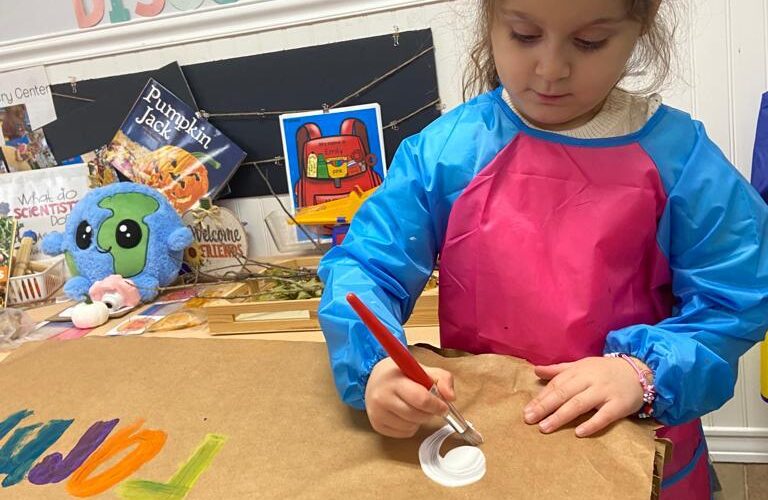Pre-Kindergarten is a time to create so many wonderful memories. The preschoolers are so busy working on their intellectual, physical, social, and emotional development by being energetic and imaginative. Their imaginations will run wild during their preschool year as they explore weekly themes of language, mathematical, science, social, and literacy topics. The four-year-old children develop problem-solving skills and scientific thinking skills through science experiments, field trips, homework, and monthly hands-on projects. There are daily, small, and whole-group activities directed by the teachers and children. These activities increase self-confidence while encouraging their sense of humor and willingness to be adventurous.
Portfolios and developmental assessments are used to document the achievements of the children. Parent-teacher communication is ongoing with weekly newsletters and is further enhanced with parent-teacher conferences. The children are involved in the community by participating in neighborhood events and charitable organizations.
The universal Pre-K program will follow the units of study provided by the NYC Department of Education. There are 10 units of study that are designed to embrace the early childhood domains of learning. The units of study are: welcome to pre-k, five senses, all about us, where we live, transportation, light, water, plants, babies, and transformations. Each unit will last about a month.
Our teachers will plan activities that will develop the preschooler’s oral language, emergent literacy, and social emotional skills. It is important to realize that the role of our Pre-K teachers is to facilitate each student’s thinking process to help them develop confidence, persistence, curiosity and to build on their interests.
The children will be involved in daily storytelling, physical education, music and movement. They will engage in organic play-based activities during center time. There are two center times each day. Each center is age appropriately designed to engage the children in realistic and fantasy play that relate to the units of study.
In addition, the Pre-K class with get to journey on class trips that will enhance the curriculum.
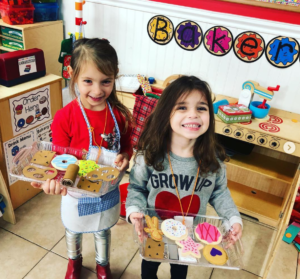
Daily Schedule for Four-Year-Olds
Arrival Activities/ Greeting Routine
This is where the children are greeted by their teachers and greet each other. They will put away their things in their designated areas, move their photo to the present in school side of the calendar and gather with their peers for a morning acitivity while waiting for all their classmates to arrive.
Large Group Meeting / Circle Time
Children will gather as a large group to discuss the daily schedule, the theme they have been working on and what centers they would like to engage in after the meeting. Story Time as a group is also read. Many books will be offered that are in relation to the monthly theme.
Center Time/ Small Group
A balance of individual and small groups play in the centers set up in the classroom. The children rotate centers throughout the day. Centers are based on the theme of the week and/or related topic they are learning about. Art, Music and Movement, Science and Discovery, Math and Manipulatives, Blocks, Technology, Sand and Water, Literarcy Centers, Relaxation and Comfort and Dramatic Play are the choices that children will engage in.
Outdoor Play Time
A balance of individual and group play opportunities in the outdoor play yard. The children are encouraged to climb, slide, and ride the trikes in the outdoor area. The children also walk to the local parks throughout the school year.
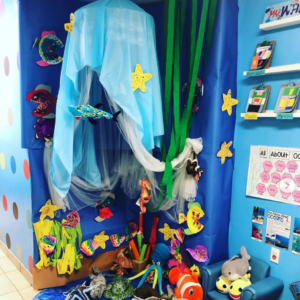
Daily Care
Children will wash their hands, use the restroom, and clean up to prepare for lunch.
Lunch Time
Each child will be encouraged to sit at the table to eat with their friends. Lunch will be given to the children which will be based on a healthy meal plan to foster independence at mealtime while the teacher models good eating habits and encourages all to try new things.
Rest Time
Nap time plays a crucial role in enhancing the memory, alertness, as well as cognitive and physical development of students. Children will rest on individual cots and listen to classical lullaby music as they build energy for the afternoon activities.
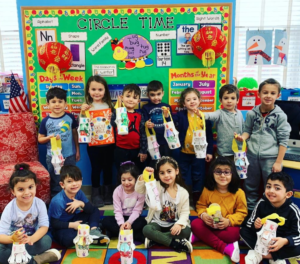
The schedule of the morning routine is then repeated with different learning activities and opportunities for enrichment.

